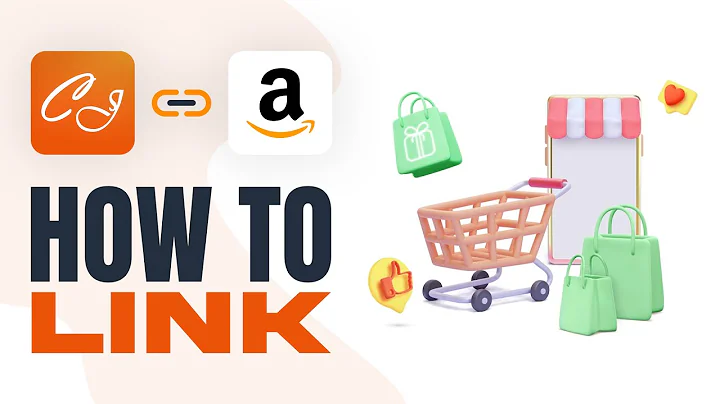Find Reliable Dropshipping Suppliers and Boost Your Business
Table of Contents
- Introduction
- How to Find and Collaborate with Drop Shipping Suppliers
- Define Your Ideal Supplier
- Research Reputable Supplier Directories
- Browse and Read Reviews on Supplier Platforms
- Reach Out and Make Connections
- Evaluate Supplier Performance
- Negotiate Pricing and Terms
- Finalize Partnership with Contracts
- Introduction to Shopify and its Features
- Customization with Themes and Templates
- Intuitive Editing Menu for Website Building
- Drag and Drop Functionality for Easy Control
- Access to a Portfolio of Stock Images
- Preview Website on Desktop and Mobile Versions
- Ease of Use for Individuals and Businesses
- Uploading Products and Customizing Website
- AI-Generated Item Descriptions
- Drop Shipping Integration with Suppliers
- Stock Management and Availability Display
- Analytics for Valuable Data Insights
- Subscription Tiers and Features
- Payment Options and Fees
How to Find and Collaborate with Drop Shipping Suppliers
Before you begin your search for drop shipping suppliers, it is important to define your ideal supplier based on factors such as product quality, reliability, shipping times, and customer service. Consider the values and standards you want your business to uphold, as this will help narrow down your search and find suppliers that match your goals.
One of the easiest ways to find drop shipping suppliers is by researching reputable supplier directories. These directories function as virtual marketplaces, allowing you to discover a wide range of suppliers across different industries. Some popular directories to consider are AliExpress, Alibaba, SaleHoo, and Worldwide Brands.
When browsing through these platforms, take the time to read reviews and ratings. This will help you identify suppliers that meet your criteria and have a positive reputation among other businesses.
Once you have identified potential suppliers, it's time to reach out and make connections. Send personalized messages introducing yourself and your business. Ask relevant questions about their products, shipping methods, and pricing. Building a relationship based on communication and transparency is crucial in establishing a successful partnership.
Before finalizing any partnership, evaluate the performance of potential suppliers. This can be done by reviewing their track record, checking customer feedback, and assessing their fulfillment capabilities. It's important to ensure that they can meet their commitments and provide a high level of service to your customers.
When it comes to negotiating pricing and terms with a supplier, be open and transparent about your business goals and expectations. Discuss minimum order quantities, bulk discounts, and shipping arrangements. Aim for a win-win situation where both parties benefit from the partnership. Keep in mind that successful collaborations are built on mutual trust and understanding.
To formalize your partnership, it is recommended to sign contracts that outline the terms and conditions. This helps protect both parties and ensures clarity in the working relationship. Regularly monitor the performance of your suppliers to ensure they continue to meet your expectations and fulfill their obligations.
Introduction to Shopify and its Features
Shopify is a popular e-commerce platform that offers a wide range of features to help you build, customize, and manage your online store. Whether you're just starting out or running an established business, Shopify provides the tools and resources needed to create a successful online presence.
One of the standout features of Shopify is its customization options. With a massive library of free and paid themes, you can easily find a design that suits your business. Shopify's intuitive editing menu allows you to add or remove different sections of the templates, giving you full control over the layout of your website. The drag and drop functionality makes it easy to rearrange elements and create a unique, visually appealing online store.
Shopify also provides access to over 20,000 stock images, making it easier for smaller businesses to create professional-looking websites without the need for expensive custom photography. During the website building process, you can preview how your website looks on both desktop and mobile versions, ensuring a seamless user experience across different devices.
One of the key advantages of Shopify is its ease of use. Whether you are a beginner or an experienced user, Shopify caters to individuals and businesses of all skill levels. With Shopify, you don't need to worry about the technicalities of building a website. The platform takes care of hosting, maintenance, and other backend tasks, allowing you to focus on uploading products and customizing your website to suit your brand.
Shopify's AI-generated item description feature saves you time and effort by automatically generating compelling descriptions for your products. By simply inputting the item type and choosing a tone for the description, Shopify will generate engaging content that helps sell your products.
For businesses that rely on drop shipping, Shopify offers seamless integration with most suppliers. This means that you can easily link your store to suppliers' catalogs and have their products automatically uploaded to your website. Shopify also handles stock management, updating quantities and displaying sold-out items to customers when stock levels reach zero.
Analytics is another powerful feature offered by Shopify. It provides valuable insights into your website's performance, including data on visitor traffic, total sales, return and customer rates, average order value, and more. These analytics enable you to make informed decisions and optimize your store for better results.
Shopify offers different subscription tiers to suit businesses of all sizes. The basic tier provides all the essential features you need to get started, while the Shopify and advanced tiers offer additional functionality to help you scale your online store. The number of staff accounts and customizable reports increase as you upgrade to higher tiers.
When it comes to payments, Shopify does not charge a percentage of each transaction like some other e-commerce platforms. Instead, they only charge a two percent fee when a payment is made through a third-party payment service integrated with your store. Shopify Payments, a built-in payment gateway, allows you to process payments without incurring additional transaction fees. Additionally, Shopify offers support for manual payment methods such as cash on delivery and bank transfers.
In summary, Shopify is a comprehensive e-commerce platform that caters to businesses of all sizes. It offers advanced customization options, ease of use, drop shipping integration, analytics, and flexible pricing options. With Shopify, you can easily build and manage your online store, allowing you to focus on growing your business and maximizing your sales.
Pros of Finding and Collaborating with Drop Shipping Suppliers
- Access to a wide range of suppliers across different industries
- Opportunity to establish valuable partnerships
- Ability to source products without the need for inventory
- Flexibility in pricing and terms negotiation
- Potential for scalability and growth in your dropshipping business
Cons of Finding and Collaborating with Drop Shipping Suppliers
- Risk of working with unreliable suppliers
- Potential for delays in shipping times
- The need for careful evaluation and monitoring of supplier performance
- Possibility of price fluctuations and limited control over product availability
Pros of Using Shopify for Your E-commerce Business
- Wide range of customizable themes and templates
- Intuitive editing menu and drag-and-drop functionality for easy website building
- Stock image library for professional-looking websites
- Responsive design for optimal user experience on desktop and mobile
- User-friendly platform suitable for individuals and businesses of all skill levels
- Seamless integration with drop shipping suppliers
- Automated stock management and availability display
- Analytics for data-driven decision making
- Flexible subscription tiers to match business needs and preferences
- Transparent pricing with no transaction fees when using Shopify Payments
Cons of Using Shopify for Your E-commerce Business
- Additional costs for premium themes and apps
- Limited flexibility in certain design aspects for advanced users
- Some features may require technical knowledge or assistance
- Reliance on third-party payment services for certain transactions
FAQ
Q: How do I find reliable drop shipping suppliers?
A: To find reliable drop shipping suppliers, start by defining your ideal supplier based on factors such as product quality, reliability, shipping times, and customer service. Research reputable supplier directories and read reviews from other businesses to identify potential suppliers. Reach out and make connections, ask relevant questions, and evaluate their performance before finalizing a partnership.
Q: Can I negotiate pricing with drop shipping suppliers?
A: Yes, it is possible to negotiate pricing with drop shipping suppliers. Be open and transparent about your business goals and expectations. Discuss minimum order quantities, bulk discounts, and shipping arrangements. Aim for a mutually beneficial partnership and consider the long-term value of the relationship.
Q: What customization options does Shopify offer?
A: Shopify offers a wide range of customization options, including a massive library of themes and templates. The intuitive editing menu allows you to add or remove different sections, while the drag and drop functionality gives you control over the layout of your website. You can also customize colors, fonts, and images to match your brand.
Q: Can I integrate my drop shipping suppliers with Shopify?
A: Yes, Shopify allows seamless integration with most drop shipping suppliers. You can link your store to their catalogs, and their products will automatically be uploaded to your website. Shopify also handles stock management, updating quantities and displaying sold-out items to customers when stock levels reach zero.
Q: What analytics can I access on Shopify?
A: Shopify provides analytics that offer valuable insights into your website's performance. You can track visitor traffic, total sales, return and customer rates, average order value, and more. This data helps you make informed decisions, optimize your store, and identify areas for improvement.
Q: Are there different subscription tiers available on Shopify?
A: Yes, Shopify offers different subscription tiers to cater to businesses of all sizes. The basic tier provides essential features to get started, while the Shopify and advanced tiers offer additional functionality for scaling your online store. Staff accounts and customizable reports increase as you upgrade to higher tiers.
Q: What payment options does Shopify support?
A: Shopify supports various payment options, including Shopify Payments, which is a built-in payment gateway. With Shopify Payments, you can process payments without incurring additional transaction fees. Shopify also integrates with third-party payment services such as PayPal, allowing customers to choose their preferred payment method.
Q: Can I try Shopify before committing to a subscription?
A: Yes, Shopify offers a three-day free trial that allows you to explore the platform and its features. Additionally, by using a special link in the description, you can benefit from paying only one dollar per month for the first three months of your subscription.
Q: Can I customize reports and analytics on Shopify?
A: Shopify offers customizable reports and analytics, especially in the advanced tiers. These reports provide more detailed insights into your website's performance and can help you track key metrics specific to your business.
Q: Does Shopify charge transaction fees on all payment methods?
A: No, Shopify does not charge transaction fees on all payment methods. If you use Shopify Payments or manual payment methods such as cash on delivery and bank transfers, you won't incur additional transaction fees. However, if a third-party payment service integrated with your store is used, a two percent fee will be charged per transaction.
Q: Is Shopify suitable for small businesses?
A: Yes, Shopify is suitable for small businesses. The platform offers a basic tier that provides all the essential features needed to build an online store. The ease of use, customization options, and scalability make Shopify a popular choice for businesses of all sizes.















